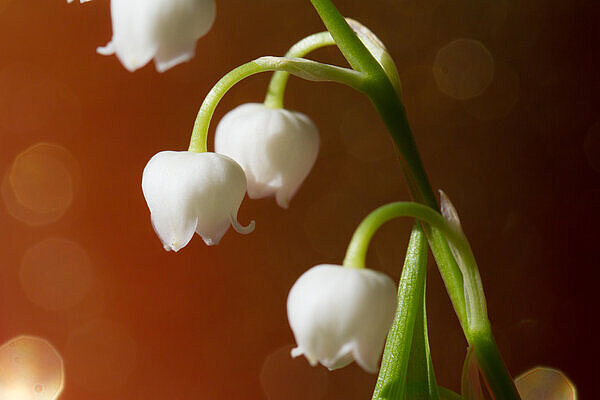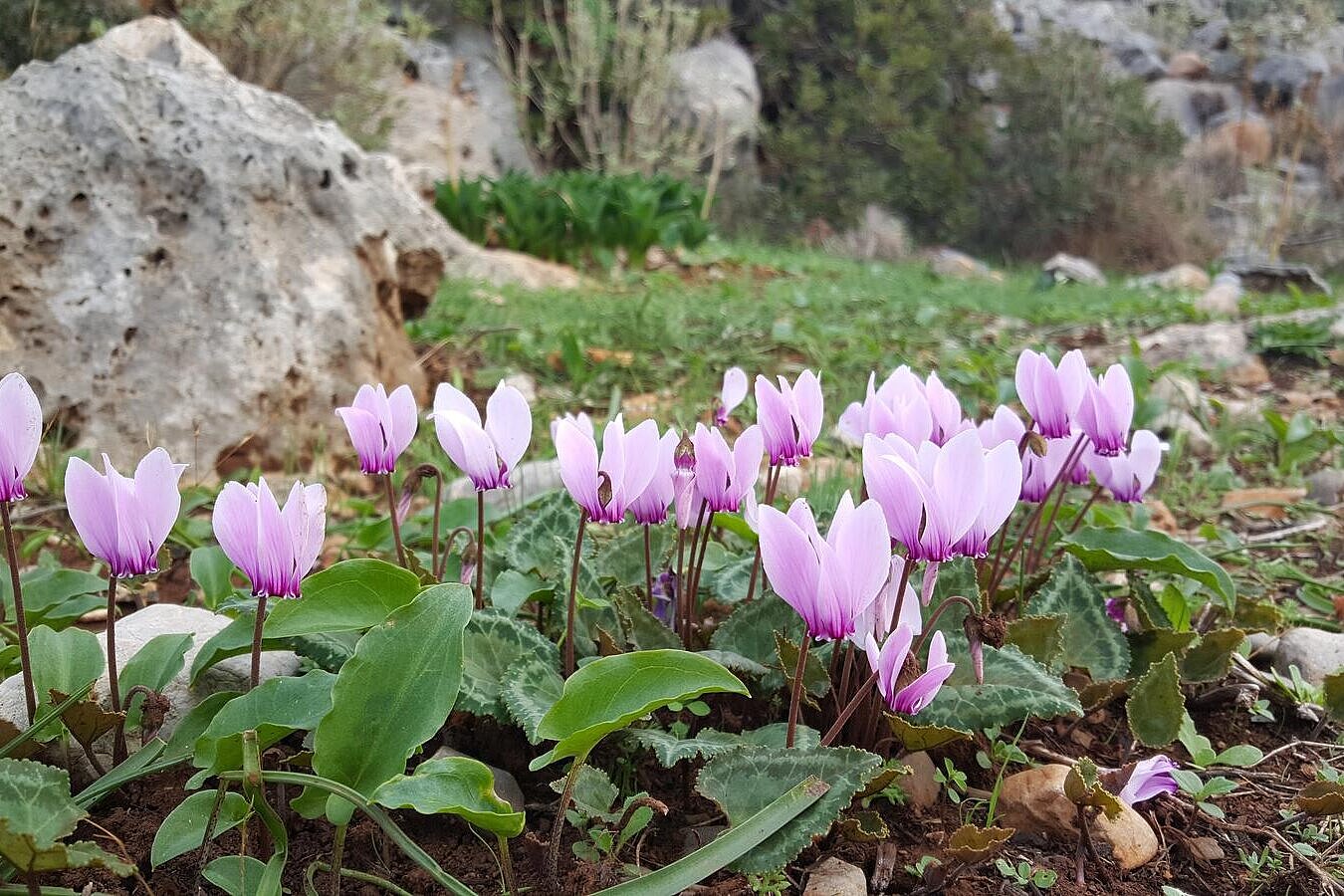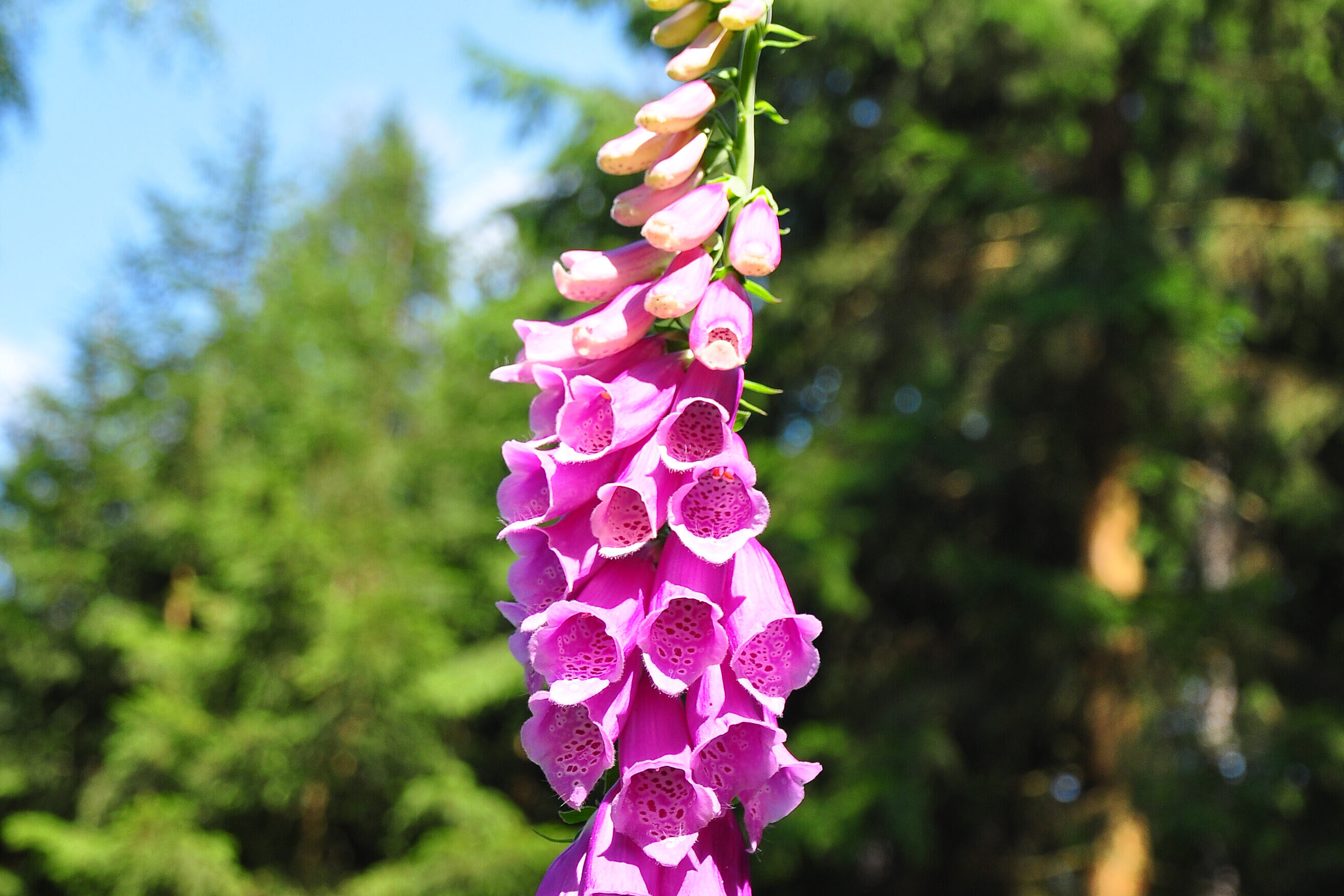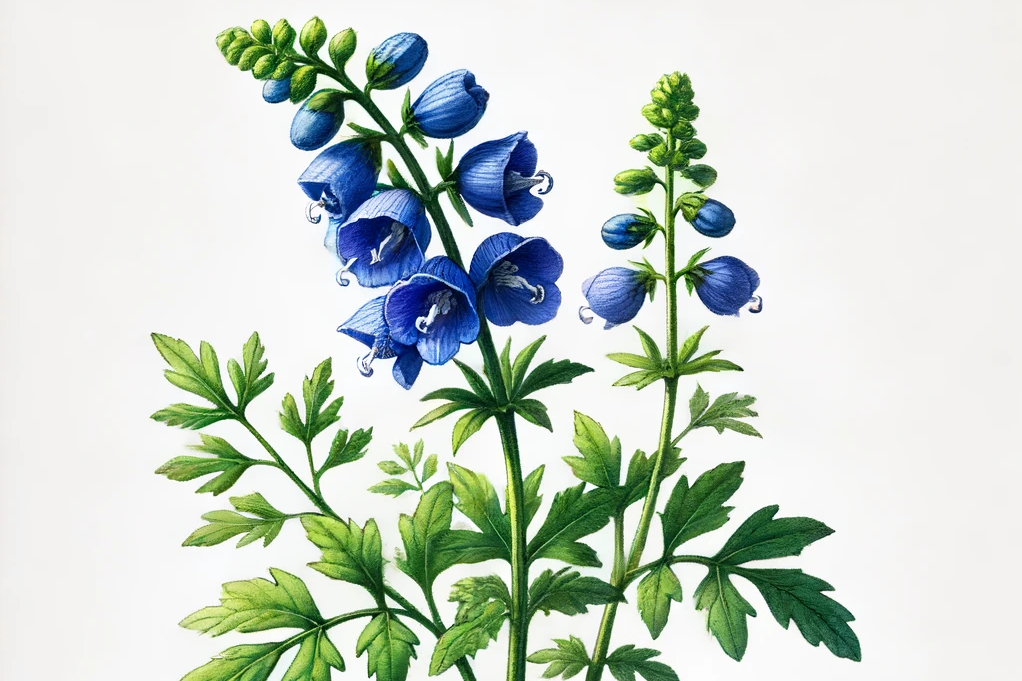Genuine Solomon seal
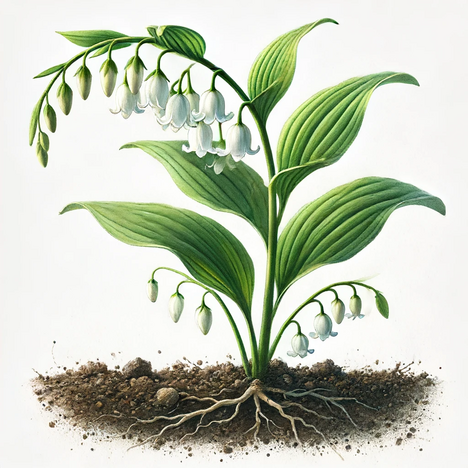
What is true Solomon's seal?
Solomon's seal belongs to the asparagus family (Asparagaceae) and is native to Europe, Asia and North America. The plant is perennial and is characterized by its long, curved stems on which white, bell-shaped flowers grow in spring and early summer. In the fall, small black berries develop from the flowers. Traditionally, Solomon's seal has been used in folk medicine, particularly in Chinese medicine, where it is valued for its anti-inflammatory and healing properties.
Is Solomon's seal poisonous to dogs?
Unfortunately, Solomon's seal is poisonous to dogs. The plant contains saponins that can lead to a variety of health problems in dogs.
Symptoms of poisoning
If your dog has eaten parts of the Solomon's seal, the following symptoms may occur:
- Vomiting: One of the most common first signs.
- Diarrhea: Gastrointestinal discomfort often occurs quickly.
- Salivation: Increased salivation can be a sign of nausea.
- Apathy and weakness: Your dog may appear lethargic and less active.
- Abdominal pain: Your dog may show discomfort or pain in the abdominal area.
Immediate measures
If your dog has eaten real Solomon's seal, it is important to act quickly:
- Contact a veterinarian: Call your vet immediately and describe the situation.
- Remove plant debris: Make sure your dog has no further access to the plant.
- Observe symptoms: Pay close attention to the above symptoms and inform the vet of any changes.
Preventive measures
To ensure that your dog does not come into contact with Solomon's seal, you should take the following precautions:
- Check your garden: Check your garden and remove any Solomon's seal if present.
- Be alert on walks: Make sure your dog doesn't nibble on plants during walks.
- Training: Teach your dog not to eat plants. A command such as "No" or "Don't do that" can be helpful.
Alternatives for the garden
If you don't want to miss out on the beauty of plants, there are numerous non-toxic alternatives that are safe for dogs:
- Marigold (Calendula officinalis): Beautiful and non-toxic.
- Lavender (Lavandula angustifolia): Smells lovely and is safe for dogs.
- Roses (Rosa spp.): Classic beauty without the danger.
Safety first
Solomon's seal may be an interesting and aesthetically pleasing plant, but its toxic properties make it unsuitable for households with dogs. By being aware of the dangers and taking appropriate precautions, you can ensure the well-being and health of your dog. Remember that the safety of your faithful companion should always come first. If you have any doubts or suspect that your dog has eaten a poisonous plant, do not hesitate to consult the vet immediately.
Properties 6
Are you looking for other ingredients with a specific property?
Just click on them to find more.
If you notice any signs of hypersensitivity or poisoning in your dog, you should see your vet immediately. We are not a substitute for a vet, but we try to be as accurate as possible. Every dog reacts differently and we recommend you get a second opinion or consult your vet if in doubt.
Stay healthy and take good care of your four-legged friend!😊
Similar to Genuine Solomon seal
Lily of the valley (Convallaria majalis) belongs to the asparagus family and is a perennial plant that grows in gardens and forests. It grows up to 30 cm high and has large, green leaves that emerge...
The autumn crocus is a perennial plant that forms a brown-scaled bulb. This bulb survives the winter and produces new flowers the following fall. The flowers are funnel-shaped, have six equally...
Foxglove belongs to the plantain family and is widespread in Europe, Asia and North America. There are around 20 different species of foxglove, which differ in the shape and color of their flowers....
Monkshood (Aconitum napellus) belongs to the buttercup family (Ranunculaceae). This plant is mainly native to the temperate zones of the northern hemisphere and is often planted in gardens because...
